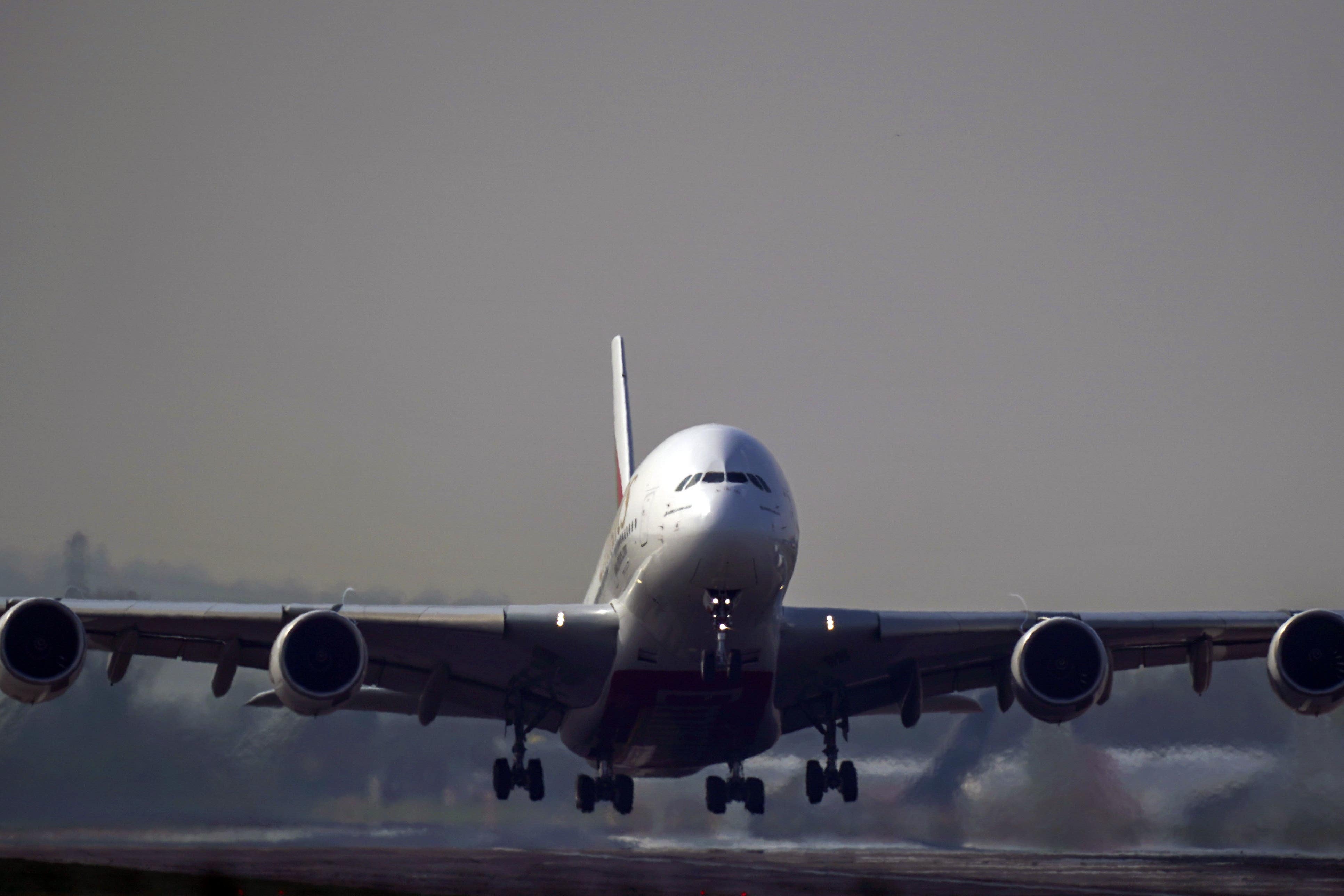Government launches ‘new and improved’ task force to cut aviation emissions
Transport Secretary Louise Haigh pledged to work with industry to make the UK ‘a global leader in sustainable travel’.

Your support helps us to tell the story
From reproductive rights to climate change to Big Tech, The Independent is on the ground when the story is developing. Whether it's investigating the financials of Elon Musk's pro-Trump PAC or producing our latest documentary, 'The A Word', which shines a light on the American women fighting for reproductive rights, we know how important it is to parse out the facts from the messaging.
At such a critical moment in US history, we need reporters on the ground. Your donation allows us to keep sending journalists to speak to both sides of the story.
The Independent is trusted by Americans across the entire political spectrum. And unlike many other quality news outlets, we choose not to lock Americans out of our reporting and analysis with paywalls. We believe quality journalism should be available to everyone, paid for by those who can afford it.
Your support makes all the difference.A “new and improved” task force to cut aviation emissions has been launched by the Government.
Transport Secretary Louise Haigh pledged to work with the industry to make the UK “a global leader in sustainable travel”.
The Jet Zero Taskforce will aim to support the production and delivery of sustainable aviation fuels (Saf) and zero-emission flights, as well as consider how to improve aviation systems to make them more efficient.
It will feature an annual chief executive-level meeting chaired by Ms Haigh and attended by Business Secretary Jonathan Reynolds and Energy Secretary Ed Miliband.
Other members will include the bosses of airlines such as easyJet and Virgin Atlantic, airports including Heathrow and Manchester, as well as fuel producers, trade bodies and leading universities.
Ms Haigh said: “Climate change is one of the biggest challenges we face, and together with industry, I am determined to build an aviation sector that’s future-ready and better for the planet.
“We need to make flying a cleaner, greener experience and the new and improved Jet Zero Taskforce will be the driving force behind this transition.
Collaboration with government and across the whole sector and supply chain is vital to making the rapid progress we need, and we look forward to working with the new task force to help usher in a new era of sustainable air travel
“I look forward to working with all members to deliver meaningful changes that will boost our economy and make the UK a global leader in sustainable travel.”
Tim Alderslade, chief executive of Airlines UK, which represents UK-registered carriers, said: “The UK can lead the way in net-zero aviation, ensuring our world-class aviation and aerospace companies can continue to support a growing UK economy and industrial base, and provide families the chance to travel long into the future.
“Collaboration with government and across the whole sector and supply chain is vital to making the rapid progress we need, and we look forward to working with the new task force to help usher in a new era of sustainable air travel, with all the jobs and investment that entails.”
The task force will meet for the first time on December 4.
It will build on the work of the Jet Zero Council, set up by the Conservative government in June 2020.
This led to Virgin Atlantic operating the first transatlantic flight by an airliner using pure Saf from Heathrow to New York in November last year.
Saf is seen as vital to reduce the aviation industry’s carbon emissions.
It is made from sustainable sources such as agricultural waste and used cooking oil, meaning its production involves using about 70% less carbon.
Saf is currently much more expensive to produce than conventional jet fuel.
A new mandate was signed into law last week, requiring an increasing amount of Saf in overall jet fuel to be used for UK flights from the start of next year.
Under the regulation, by 2040 some 22% of jet fuel must come from sustainable sources.
The Department for Transport said it was investing up to £450,000 to support aviation decarbonisation in other countries, such as helping developing states create policies and access financing for Saf.
The UK set a target to reduce its overall emissions by 81% by 2035 at the recent Cop29 conference in Baku, Azerbaijan.